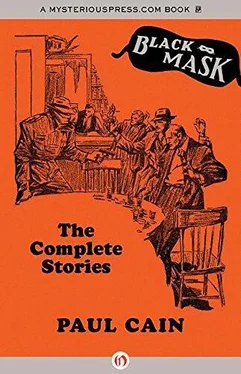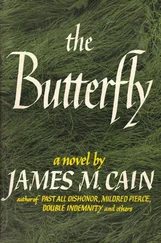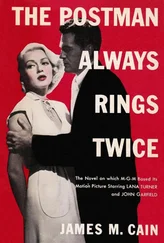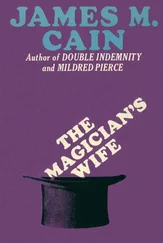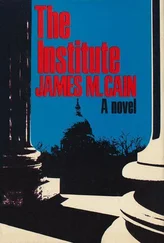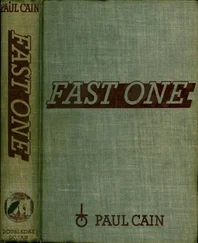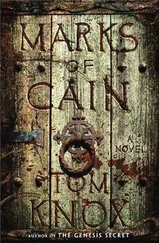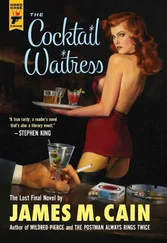Woodward said: “How much do you want?”
“Plenty.” Kells picked up the piece of paper, held it by a corner. He grinned at Beery. “It’s lousy theater,” he said. “The ‘incriminating confession’” — he said it melodramatically. “All we need is the Old Homestead, some papier-mâché snow, and a couple of bloodhounds.”
“And you ought to have a black mustache.” Beery looked up, smiled.
Woodward said: “As I told you — my, uh — people are pressed for cash.”
“I don’t give a damn how pressed they are. They can do business with me now — big business — and get their lousy administration out of the hole, or they can start packing to move out of City Hall. This is the last call...”
Woodward started to speak and then the phone rang. Borg answered it, put his hand over the transmitter, nodded to Kells. Then he got up and brought the phone over.
Kells said: “Hello... Wait a minute — I want you to meet a friend of mine.”
He spoke to Woodward: “In case you’re figuring this for a plant, I want you to talk to this guy. You’d know Fenner’s voice, wouldn’t you?”
Woodward nodded. He took the phone from Kells, hesitantly said: “Hello.”
Kells reached over and took the phone back. He spoke into it, smiled at Woodward, and said: “Hello, Lee... That was Mister Woodward, a big buyer from downtown... Uh-huh... Now don’t get excited, Lee — we haven’t made a deal yet... Why don’t you come on over?... Yes — and bring plenty of cash — it starts at fifty grand... Okay, make it snappy.”
He hung up, stared vacantly at Woodward’s cravat.
“Now I’m not going to argue with you,” he said. “You heard what I told Fenner. You’d better get going — first here, first served.”
Woodward stood up. “I’ll see what I can do,” he said. He put on his hat, nodded to Beery and Borg and started towards the door.
Kells said: “And don’t get ideas. If you come back here with the law, and try to hang a ‘conspiracy to defeat justice’ rap on me, I’ll swear that the whole goddamned thing is a lie — and so will my gentlemen friends.” He jerked his head at Beery and Borg.
Woodward had turned to listen. He nodded, then turned again and went out and closed the door.
Kells said: “This is going to be a lot of fun, even if it doesn’t work.”
“You said something about being all washed up with the fun angle...” Beery got up and poured himself a drink. “You said something about being out for the dough.”
“Watch it work.” Kells leaned back in the chair and closed his eyes.
Fenner put thirty thousand-dollar notes on the arm of Kells’ chair. Kells took the piece of crumpled paper out of his breast pocket and handed it to Fenner, and Fenner unfolded it and looked at it and then took a cigarette lighter out of his pocket and touched the flame to a corner of the paper.
Kells said: “Now get out of here while you’re all together.” He said it very quietly.
They were alone in the room.
Fenner said: “What could I do, Gerry? I had to go to Crotti when you told me he had this.” He put the last charred corner of paper in an ashtray. “It took me a couple days to get to him — I was damned near crazy...”
“Right.” Kells moved his head slowly up and down and his expression was not pleasant. “You were plenty crazy when you offered Crotti my scalp.”
Fenner stood up. He didn’t say anything, just stood there looking out the window for a minute, then he turned and started towards the door.
“I’ll give you a tip, L.D.,” Kells’ voice was low, and he stared with hard cold eyes at Fenner. “Take it on the lam — quick.”
Fenner opened his mouth and then he closed it, swallowed.
He said: “Why — what do you mean?”
Kells didn’t answer; he stared at Fenner coldly. Fenner stood there a little while and then he turned and went out. Borg and Granquist came out of the kitchen.
Kells said: “Thirty. I wonder if we’ll do as well with Woodward. These guys don’t seem to take me seriously when I talk about fifty thousand. Maybe it’s the depression.”
At a few minutes after one, Woodward telephoned.
The crutches that Janis had called about had been delivered, and Kells was practicing walking with them. He put them down, sat down at the table and took the phone from Borg.
He said, “Hello,” and then listened with an occasional affirmative grunt. After a minute or so he said, “All right — make it fast,” and hung up.
He grinned at Granquist. “Twenty more,” he said. “Up to now it’s been a swell day’s work. If we get it...”
Borg said: “Do you mind letting me in on how the hell you’re going to sell this thing to Woodward when you’ve already sold it to Fenner?”
Kells took two more pieces of creased crumpled paper from his pocket, tossed them on the table in front of Borg.
Borg looked at the two, smiled slowly. “How about making them up in gross lots?” he said.
Kells inclined his head towards Granquist. “The lady’s work,” he said. “She used to be in the business — she went over to the Venice early this morning and snagged the letterheads.”
Granquist was sitting in the big chair by the window. Kells picked up the two pieces of paper and put them back in his pocket, got up and hobbled over to her, sat down on the arm of the chair.
“God! You’re awfully quiet, baby,” he said. “What’s the matter?”
She looked up at him and her eyes were frightened.
“I want to go — I want us to go,” she said huskily. “Something awful’s going to happen...”
Kells put his arm around her head, pulled it close against his chest.
“If we get the twenty from Woodward,” he said very quietly — “and the big stuff from Crotti, it’ll make almost two hundred grand—”
“We’ve got enough,” she broke in. “Let’s go, Gerry — please.”
He sat without moving or speaking for a little while, staring out the window at the brightness of the sun. Then he got up and went back to the table and took up the phone and asked the operator to get him the Sante Fe ticket office.
When the connection had been made, he said: “I want to make reservations on the Chief , tomorrow evening — a drawing room — two...”
Granquist had turned. She said: “Tonight! Gerry.”
Kells smiled at her a little. He shook his head and said: “Yes... Kells, Miramar Apartments in Hollywood — send them out.”
Then he hung up and reached across the table for the bottle and glasses, poured drinks. He raised his glass.
“Here’s to Crime — and the Chief tomorrow night.”
Granquist got up and came to the table and picked up one of the glasses. She said, “Hey, hey,” and smiled across the table at Kells.
There was a knock at the outer door and Granquist went into the bedroom, and Borg got up and let Woodward in.
Woodward was very nervous. He put two neat sheafs of thousandand five-hundred-dollar notes on the table, said: “There you are, sir.”
Kells tossed one of the forged confessions across the table and slid one of the thousand-dollar notes out of the sheaf, examined it carefully.
Woodward said: “And the other things — the pictures and things?...”
“They’re downtown. I’ll call Beery to turn them over to you — at the Howard Hotel.”
Woodward nodded. He went over to the window and adjusted his glasses, peered closely at the paper. He turned to say something and then there was a sharp sound and glass tinkled on the floor. Woodward stood with his mouth open a little while, then his legs buckled under him slowly and he fell down and stretched one arm out and took hold of the bottom of one of the drapes. He rolled his head once back and forth, and his glasses came off and stuck out at an angle from the side of his head. His eyes were open, staring.
Читать дальше
